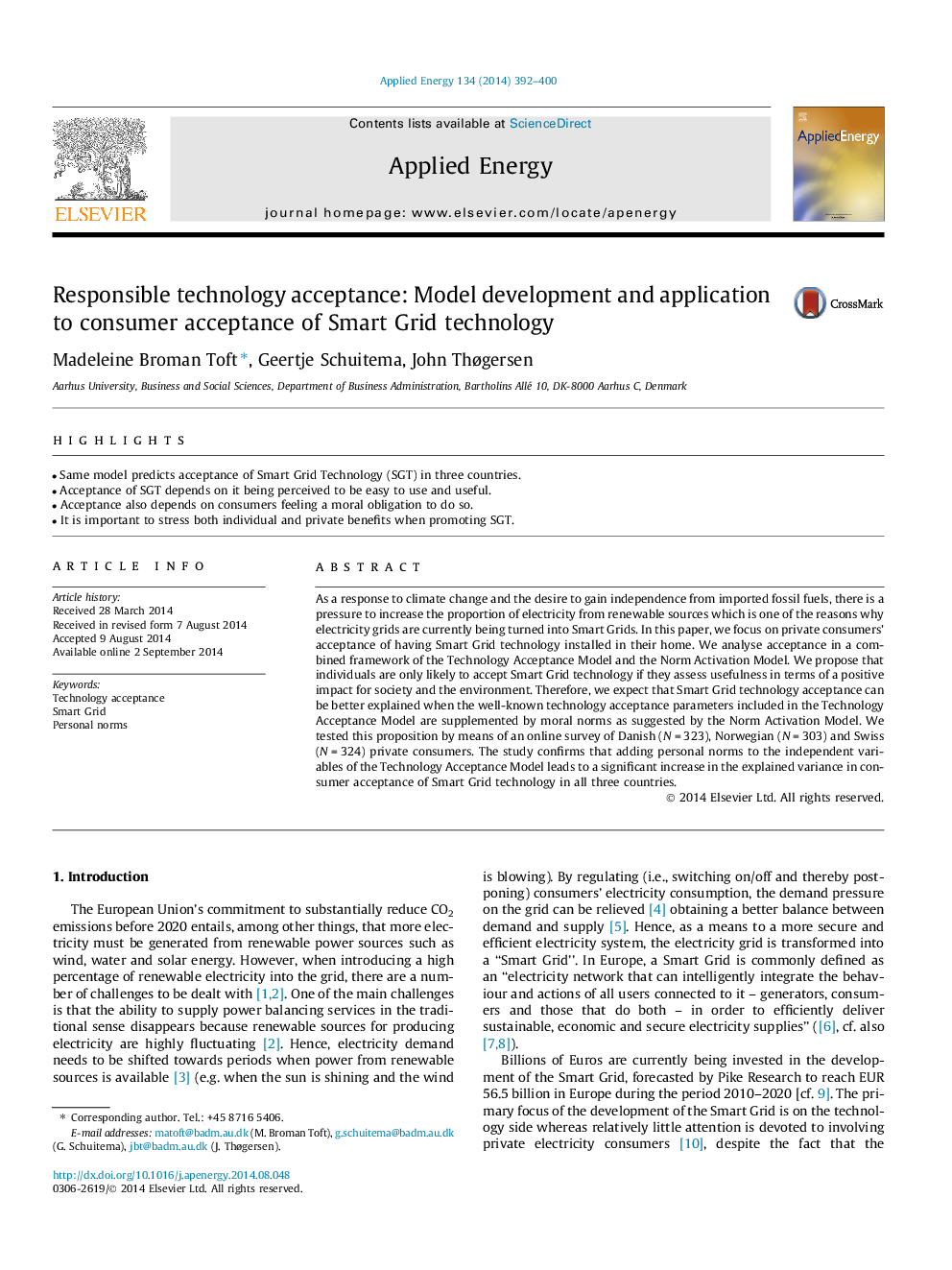| Article ID | Journal | Published Year | Pages | File Type |
|---|---|---|---|---|
| 6689658 | Applied Energy | 2014 | 9 Pages |
Abstract
As a response to climate change and the desire to gain independence from imported fossil fuels, there is a pressure to increase the proportion of electricity from renewable sources which is one of the reasons why electricity grids are currently being turned into Smart Grids. In this paper, we focus on private consumers' acceptance of having Smart Grid technology installed in their home. We analyse acceptance in a combined framework of the Technology Acceptance Model and the Norm Activation Model. We propose that individuals are only likely to accept Smart Grid technology if they assess usefulness in terms of a positive impact for society and the environment. Therefore, we expect that Smart Grid technology acceptance can be better explained when the well-known technology acceptance parameters included in the Technology Acceptance Model are supplemented by moral norms as suggested by the Norm Activation Model. We tested this proposition by means of an online survey of Danish (NÂ =Â 323), Norwegian (NÂ =Â 303) and Swiss (NÂ =Â 324) private consumers. The study confirms that adding personal norms to the independent variables of the Technology Acceptance Model leads to a significant increase in the explained variance in consumer acceptance of Smart Grid technology in all three countries.
Related Topics
Physical Sciences and Engineering
Energy
Energy Engineering and Power Technology
Authors
Madeleine Broman Toft, Geertje Schuitema, John Thøgersen,
